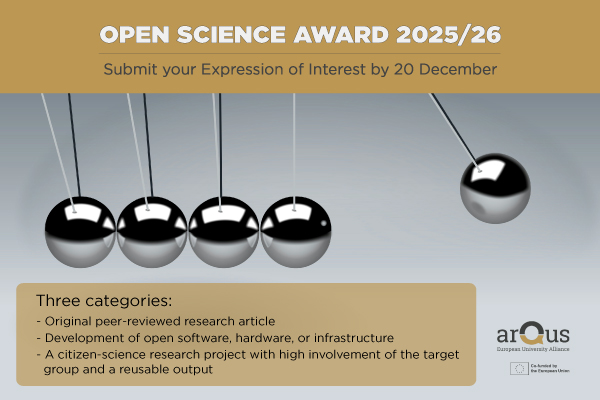Eligibility
This call is open to early-career researchers (PhD students or early postdocs) from Arqus member universities who have extensively applied open science practices in their research, participated in a citizen science project, or developed open-source tools or software. Applicants must have made a significant and substantive contribution to the research project as one of the equal contributors.
